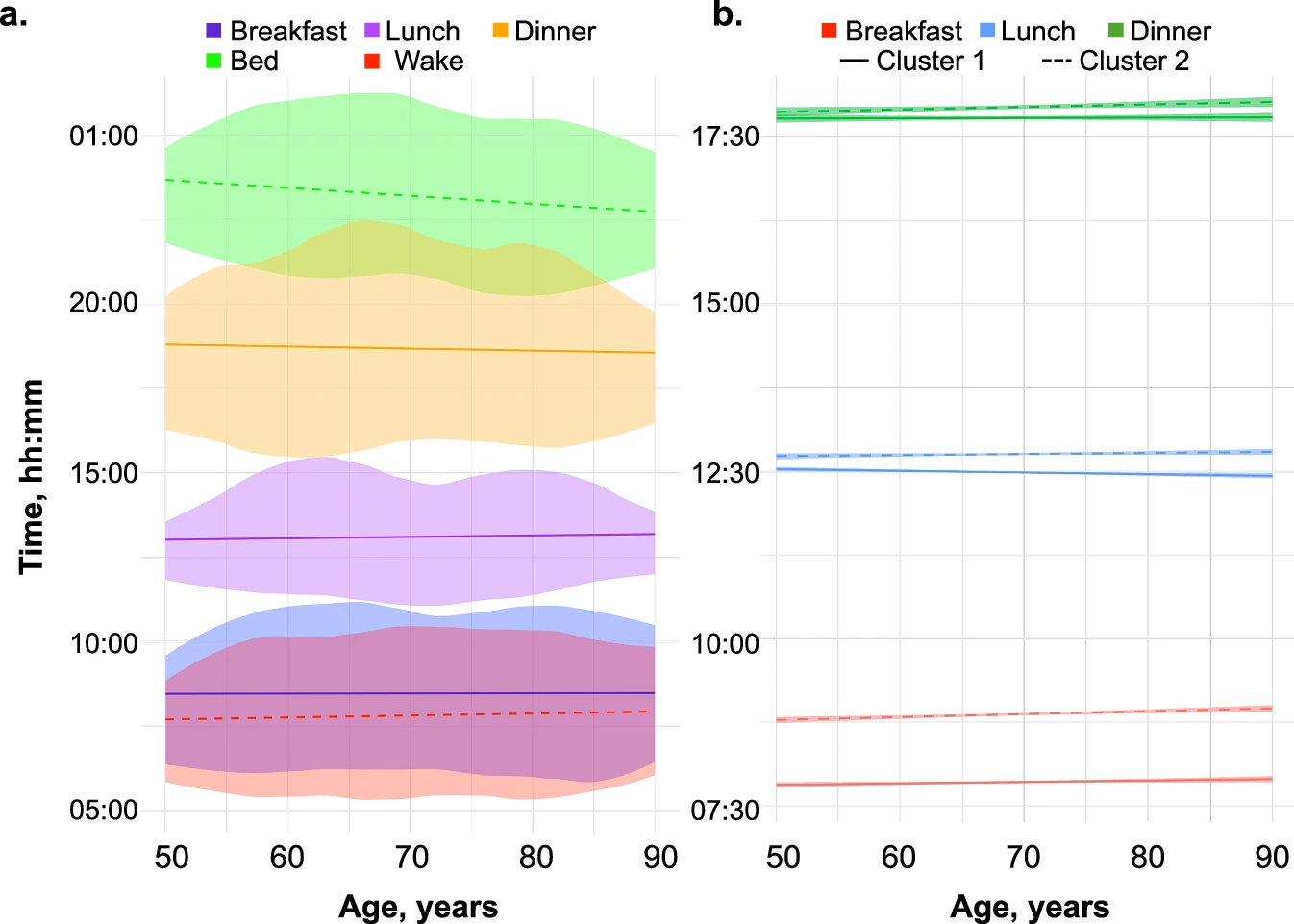Breakfast O’Clock
If you’ve been savoring your breakfast at the respectable hour of, say, 11:30 AM, science has some politely raised eyebrows for you. A new study from the University of Manchester followed nearly 3,000 older adults over three decades and found that as we age, our meals slowly start to drift later in the day - especially breakfast. And while that may feel like a well-earned retirement perk, there might be health consequences worth noting.
The scientists tracked mealtimes from the 1980s through 2017, looking at breakfast, lunch, dinner, sleep habits, and health. They also peeked at participants’ genes to see if some folks are naturally more night-owl-ish.
And here is the Big Bite-Sized Finding. Breakfast creeps later with age. On average, breakfast time got about 45 minutes later over the decades. Dinner also drifted later, while lunch stayed right where it was (because apparently lunchtime is sacred).
Health struggles were tied to late meals. Fatigue, depression, anxiety, and even dental problems were all linked to eating later.
Genetics play a role. If you’re genetically wired to stay up late, you’re probably a late eater too.
Mortality alert. People who consistently ate breakfast later had a slightly higher risk of dying earlier than those who ate breakfast bright and early. (Cue the ominous breakfast bell.)After ten years, 89.5% of the “early eaters” were still around, compared to 86.7% of the “late eaters.” A small difference, but enough to make you think twice about skipping toast until brunch.
No one’s saying you need to set your alarm for 5:00 AM and eat oatmeal in the dark, but the research suggests that sticking to a consistent, earlier breakfast might be a small step toward better health and longer life. Plus, it gives you more time for your favorite second breakfast or mid-morning tea.
So tomorrow, why not treat yourself to a nourishing breakfast a little earlier - whether that’s whole-grain cereal, fruit and yogurt, green tea or your favorite cup of coffee? Your body clock will thank you, and you’ll start the day feeling one step ahead of the game.
REFERENCE
Dashti, H.S., Liu, C., Deng, H. et al. Meal timing trajectories in older adults and their associations with morbidity, genetic profiles, and mortality. Commun Med 5, 385 (2025). https://doi.org/10.1038/s43856-025-01035-x




Comments
Post a Comment